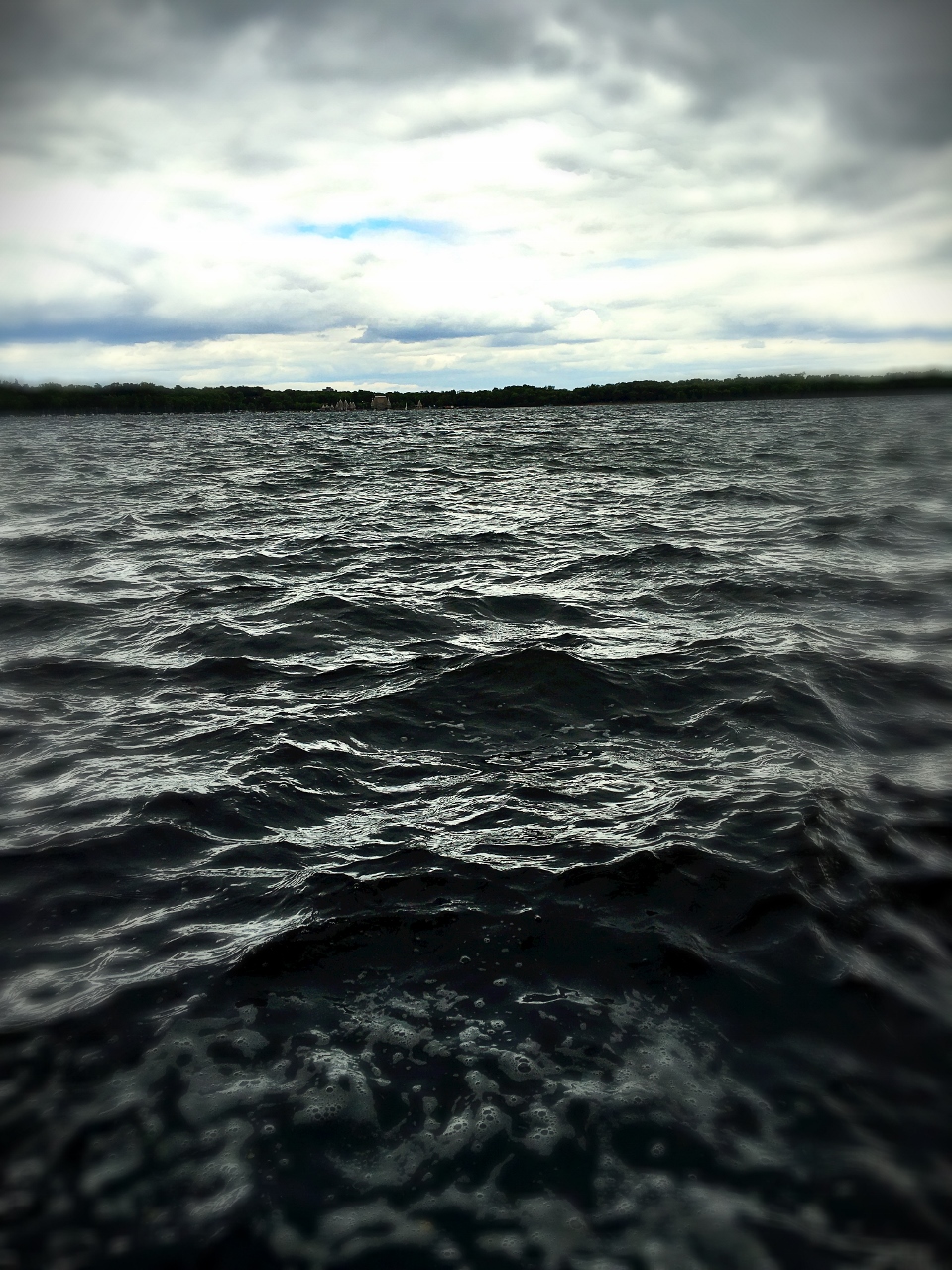
By Bruce Ballenger
There are magical days for fishers, unique because they are both rare and mysterious. These days are also accidents, and they don’t fit naturally into the pattern of causes and effects, so they must somehow be turned into stories.
Last August, Richard and I drove up to McCall, Idaho, and decided to fish the Brundage reservoir. This was a trip we both needed. Richard’s wife was dying, though her medical team continued their attempts to stop the growth of cancerous lung tumor, which had doubled in size in a year. Death struggles cannot be contained; they send their tremors in every direction, and Cheryl’s condition made my own marriage seem vulnerable, a feeling I had not expected or had ever felt before. Richard had lived long enough with an ailing partner that the idea of losing her—and of being alone—wasn’t as terrifying to him as it seemed to me. He was an attentive caretaker, and when I proposed that we take a day to fish, he said he would love to. “But let’s see how Cheryl is doing,” he said. She encouraged him to go.
Reservoirs hold the visible memory of the land they flooded. There are the naked stumps of decaying timber, particularly in low water, and the rise and fall of water often scores the shore with impossibly straight ridges, each a few feet apart, which could be steps one might descend to reach the river that once flowed through there.
Idaho was burning last summer—historic fires in both the desert and the mountains—and the air was filled with smoke, even in McCall, which is at around six thousand feet elevation. Here in the West, gaining elevation is the solution to a lot of problems—heat, inversions, and one hoped, smoke. But when the high country burns, the smoke stays where the fires are. Unlike fishers, firefighters hope for smoke because it helps suppress the fires. It was a sunny day, but the haze created a pewter wash over everything, especially the water on the reservoir, and all else was drained of color.
We launched our small kickboats, and in the morning the fishing was pretty good. I trolled small streamers, and I landed and released five or six fish in a few hours. They were pretty fish, many of them rainbow and cutthroat trout hybrids—“cutbows”—with scarlet backs and golden bellies and sides. But after lunch, the fishing slowed. Kickboats are quietly propelled by flippered feet, freeing the hands to hold the rod, and one of the great pleasures of these small boats is the comradery of trolling with a companion. When the fishing goes south, Richard and I often found each other on a lake, kicking along in unison, and talking now and then. In light of everything—Cheryl’s suffering set against the somber and smoky gloom of that day—those moments together, floating high above a lost streambed, seemed especially poignant to me.
When the conditions are right, the aquatic insects that flyfishers imitate with their feather and fur flies erupt in a hatch—a sudden blizzard of bugs that emerge from the water at once. When this one started, I heard the fish first, rising to take the flies, and then trout were all around us, swirling and splashing, hungrily working the surface. I quickly switched over to a dry fly line and put a big bug on—grasshopper-like with rubber legs. Tying knots when fish are rising around you triggers a desperation that makes knots harder to tie. The mind focuses on one thing—getting the fly to the feeding fish. Meanwhile, the hatch intensified.
“Have you looked up at the sky?” Richard said. When I did, I saw a rolling cloud of flies. They were big black bugs with yellow-orange bellies that defied classification—they weren’t mayflies, or stoneflies, or caddis, or any of the usual aquatic insects that flyfishers typically imitate—and yet they seemed to emerge from the water, hovering around us and nowhere else on the reservoir. Soon I was casting to the rising trout, my fly landing on a carpet of floating bugs. The takes varied from violent to lackadaisical, and before long we were tying into nice fish, nearly all fifteen inches or more. These were thick, well-fed trout that rose hungrily from the bottom of the reservoir. The hatch continued around us for more than an hour, and the feeding and catching continued, each of us pulling fish to our boats and quickly unhooking them to begin again. From time to time, Richard and I would turn to each other and comment on the magic of it all—two men alone together in small boats in the middle of an eruption of flies and fish.
When the hatch finally waned, we floated together for a little while, exhausted but still wondering if somehow the magic would continue. For a few minutes, the sun wanly broke through the smoky sky, but the reservoir’s surface went slick, unbroken by rising trout. For that hour, though, Richard had a break from his death watch. It was an hour filled with life—the golden flash of rising fish, the frantic flight of insects, and the steady, back-and-forth beat of our forearms as we hurled our fly lines out and away to where the fish were. Cheryl died a few days later. But when we returned to Boise that night, tired and exuberant, she was waiting for us on the back deck at Richard’s house, lying in the dark on a chaise lounge and wrapped in a white blanket. Cheryl could not get up to greet me, and yet somehow, in my mind, I see her rising, again and again.
•••
BRUCE BALLENGER, a professor of English at Boise State University, is the author of seven books.

 Follow
Follow
So, so beautiful. Vivid life with all its sensory reality, pathos and beauty.
Beautiful and wrenching. Sympathy to you all.